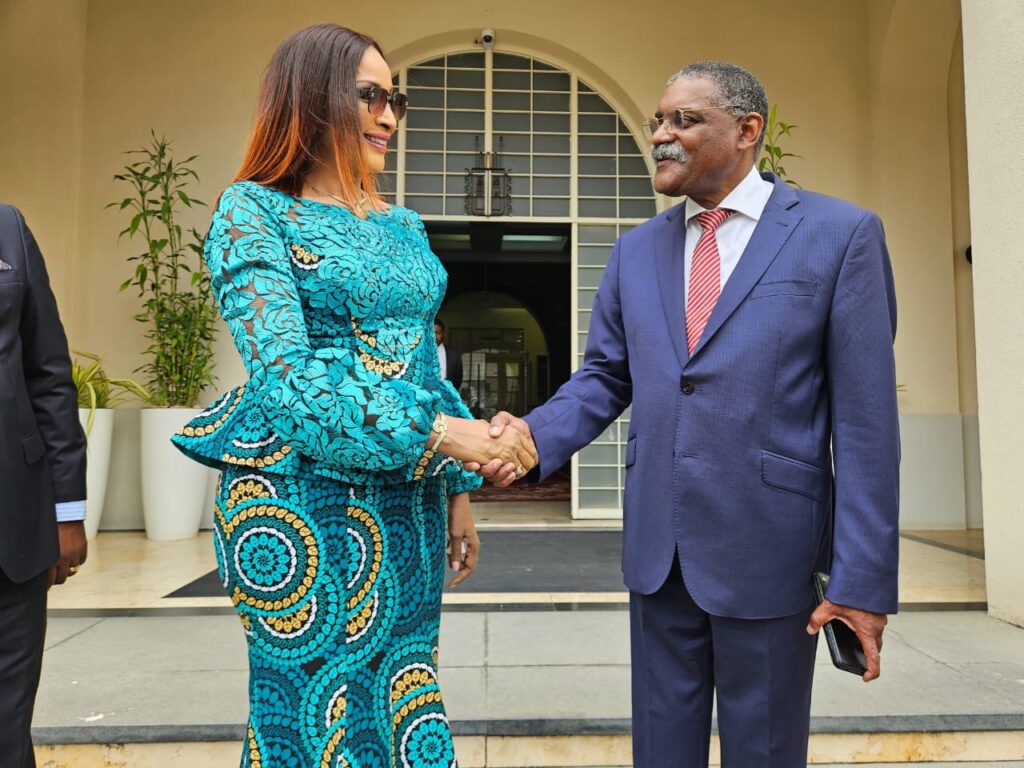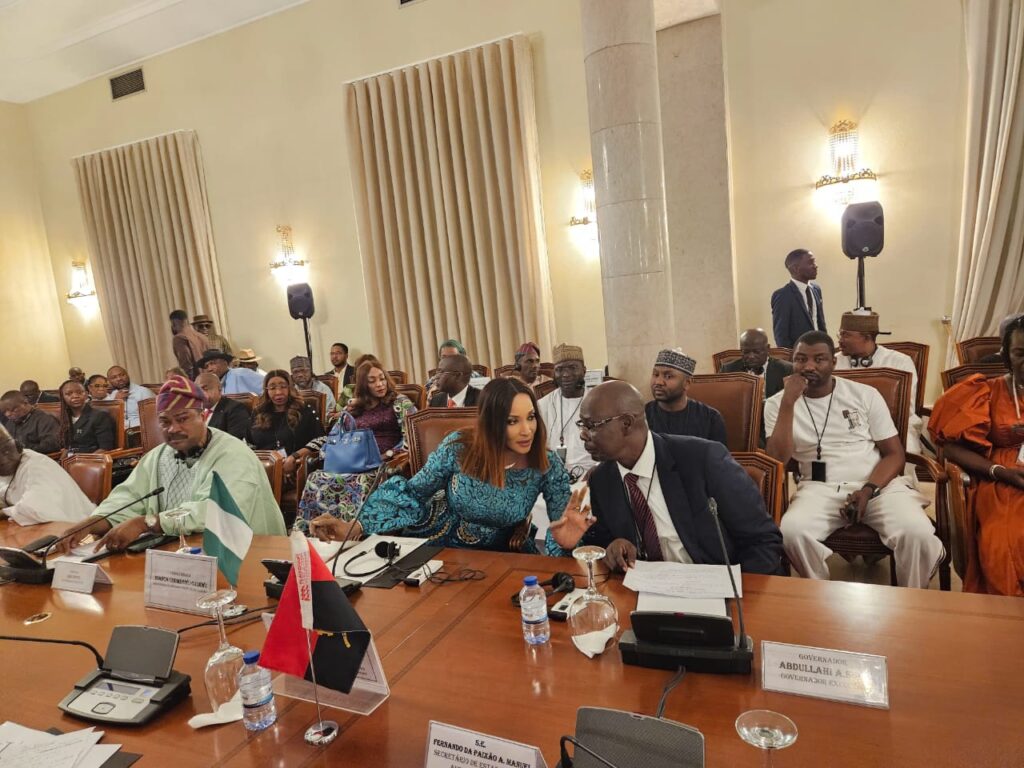Nigeria, Angola Deepens Ties, Landmark Agreements to Be Signed in Luanda.
By Raymond Enoch
In a historic diplomatic revival after more than two decades of stalled engagement, Nigeria and Angola have commenced the 5th Session of their Bilateral Economic Joint Commission (BEJC) in Luanda, with plans to sign 15 Memoranda of Understanding (MoUs) across critical sectors ranging from defence and migration to education, oil, and air travel.

Ambassador Bianca Odumegwu-Ojukwu, Nigeria’s Minister of State for Foreign Affairs, described the event as a long-overdue leap forward. “This reactivation… has provided an opportunity to resuscitate the moribund bilateral agreements between the two countries,” she said, referencing efforts dating back to the last session held in Abuja in October 2001.
She revealed that the comprehensive talks would finalize 19 MoUs and two “Twinning Agreements” between Nigerian and Angolan states—including Bayelsa-Namibe and Nasarawa-Bengo partnerships—covering sectors as diverse as technical manpower development, correctional reforms, higher education, media exchange, and mutual legal assistance in criminal matters.

Also under review are air service negotiations, anti-drug cooperation, and a proposed elimination of double taxation, as well as the entry of Nigerian banks into Angola.
> “The MoUs, when signed, will propel the existing bilateral relations to a higher pedestal,” Odumegwu-Ojukwu affirmed.
Angola’s Secretary of State for International Cooperation, Domingos Vieira Lopes, emphasized the strategic importance of the renewed ties.
> “I am convinced that this meeting will open new dynamics in our diplomatic relationship… The signing of new cooperation instruments will boost our bilateral relations,” he noted.
The Joint Commission’s working groups include Diplomatic, Defence and Security, Economic Trade, and Natural/Human Resources, reflecting the wide scope of renewed engagement.
The three-day summit, ending Friday, is poised to redefine Nigeria-Angola relations, rekindling the shared Pan-African spirit that began when Nigeria became the first country to recognize Angola’s independence in 1975.







